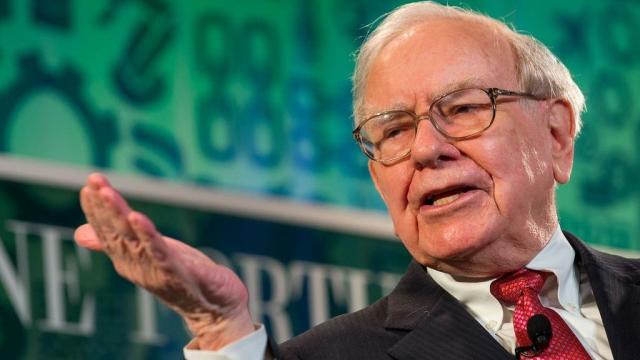Elon Musk, CEO of Tesla, SpaceX, and other innovative companies, is known for taking unconventional approaches to business, one of which is his refusal to engage in traditional advertising. In an era where companies collectively spend billions to capture consumer attention, Musk’s stance against advertising sets him apart and raises questions about consumer protection, demand inducement, and the potential consequences of rejecting or embracing traditional marketing tactics.
This article explores Musk’s perspective on advertising, examines how this aligns with consumer protection principles, and discusses the broader implications of demand inducement and its impact on consumer welfare.
Musk’s Anti-Advertising Stance
Elon Musk’s refusal to advertise is not new. He has often stated that Tesla, SpaceX, and his other ventures rely on word-of-mouth and organic interest rather than paid marketing campaigns. According to Musk, the choice not to advertise is a deliberate one rooted in a commitment to focus resources on product development and quality rather than on convincing people to buy his products through polished marketing campaigns.
This approach allows Musk to claim a certain level of moral high ground, as he suggests that his companies would rather invest in making superior products than spend money to create a perceived need for them. In an interview, he once stated, “If you need advertising to sell your product, your product is not good enough.” Instead, Musk relies on viral moments, social media engagement, and the allure of innovation to drive interest.
Consumer Protection and Demand Inducement
Musk’s stance highlights an essential aspect of consumer protection: minimizing the risk of demand inducement. Unlike many companies that employ psychological tactics to stimulate demand, Musk’s approach steers clear of many inducement strategies, thus potentially protecting consumers from being manipulated by aggressive marketing tactics. Here’s how this intersects with consumer protection principles:
- Transparency and Trust: By not advertising, Musk’s companies avoid tactics like scarcity marketing, emotional appeals, and other techniques that may influence consumer behavior through artificial urgency. Traditional advertisements often create a sense of scarcity or use emotional appeals to nudge consumers toward purchasing a product they may not necessarily need. Tesla and SpaceX, in contrast, focus on transparency, providing comprehensive information about their products without embellishing or distorting facts through advertising.
- Focusing on Product Quality Over Perception: Musk’s assertion that quality should speak for itself aligns with consumer protection principles. When companies invest in demand inducement tactics, they often shift their focus from the product itself to the perception of the product. This shift can lead to underwhelming experiences when the consumer’s perception (shaped by ads) doesn’t match the reality of the product. By eliminating traditional advertising, Musk emphasizes a commitment to product excellence, aligning with ethical consumer protection practices.
- Reducing Pressure on Consumers: Advertisements often pressure consumers into making quick decisions, especially in sectors where impulse buying is common. By not advertising, Musk’s companies avoid contributing to the high-pressure environment that is common in today’s marketplace. This approach encourages consumers to make decisions based on need and research rather than the influence of high-powered marketing campaigns.
- Consumer Education: Without advertising, Musk’s companies can avoid misleading claims, exaggerated benefits, or sensationalism. Instead, they often rely on consumer education, providing factual details about product capabilities and future developments. Musk’s engagement with consumers via platforms like Twitter allows him to directly share information, providing insights about his products without needing to package them in a glossy advertisement.
Demand Inducement: A Double-Edged Sword
While demand inducement can be a powerful tool for businesses, it is also a double-edged sword with implications for consumer welfare. The tactics employed in advertising—scarcity marketing, psychological pricing, and persuasive messaging—can manipulate consumers into making purchases that do not align with their actual needs.
Demand inducement tactics create a sense of urgency, often tricking consumers into believing they need a product right away, or they might miss out. This is particularly prominent with limited-time offers, countdown timers, and loyalty-based sales. While such tactics might increase sales, they do not always promote responsible consumer behavior. Musk’s decision to avoid advertising effectively shields consumers from this type of inducement, allowing them to make purchase decisions based on genuine interest rather than perceived urgency.
Furthermore, in sectors like electric vehicles and space exploration, where consumers need to make well-informed decisions, the absence of demand inducement helps reduce misinformation. For instance, Tesla vehicles are a substantial investment, and decisions should be based on factors like battery life, range, and environmental impact—not merely on how they are marketed.
Is Elon Musk’s Approach Truly Beneficial for Consumers?
Musk’s approach to advertising, or lack thereof, is undoubtedly refreshing. It calls attention to the need for companies to focus on product development and quality rather than manipulative marketing. Yet, some argue that not advertising can also mean a missed opportunity to inform and educate consumers about beneficial products. While Musk relies on press coverage and organic word-of-mouth, other companies may lack the influence and visibility to do the same.
On one hand, Musk’s strategy may reduce the risk of demand inducement, but on the other, it highlights a key challenge for consumer protection. As advertising is traditionally regulated, it can be monitored to prevent misleading information. In the absence of advertising, companies may disseminate product information through unregulated channels, such as social media, which can lead to misunderstandings if consumers are not adequately informed.
The Future of Ethical Marketing
Musk’s anti-advertising stance has sparked a conversation about ethical marketing. For companies that choose to advertise, the lesson here is clear: prioritize transparency, focus on the consumer’s needs, and minimize manipulative tactics.
For Musk, the question is whether he will maintain this stance as his companies grow. In an increasingly competitive market, where new players constantly emerge, even companies with great products may eventually need to turn to advertising to maintain visibility. If that happens, Musk’s challenge will be to balance effective marketing with ethical standards that align with his current moral stance.
Ultimately, Musk’s approach to demand inducement and advertising serves as a reminder that the best form of consumer protection is to offer high-quality products and transparent information. By prioritizing product excellence and direct consumer engagement, Musk’s companies avoid the pitfalls of demand inducement and contribute to a marketplace where consumers can make informed choices without feeling pressured or manipulated. While not every company can afford to forgo advertising, there is much to learn from Musk’s example about balancing profit with ethical responsibility.



